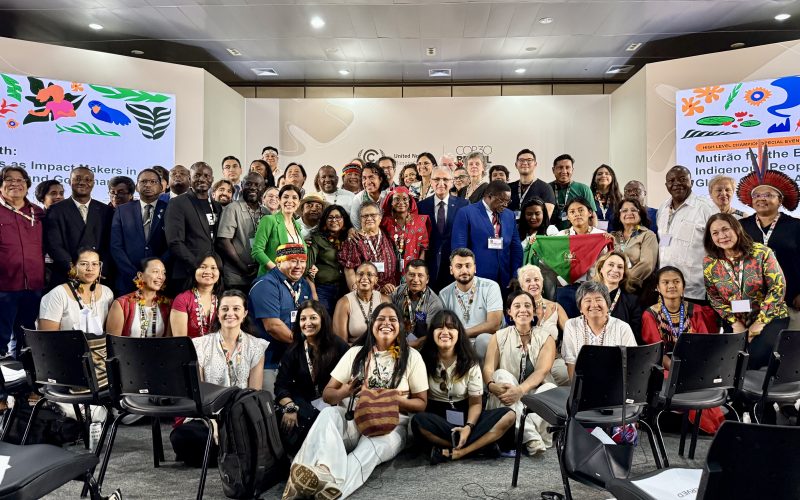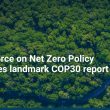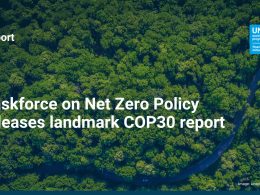Indigenous rights moved to the forefront of COP30 as protests, high-level panels and urgent appeals highlighted long-standing frustration over exclusion from global climate governance. While negotiators inside the venue debated technical issues, the most forceful messages came from outside, where Indigenous communities demanded meaningful participation in decisions affecting their lands, cultures and future.
In the early hours, members of the Munduruku people staged a peaceful sit-in at the entrance to the summit venue, protesting continued industrial expansion in the Amazon. Their statement was unequivocal: “We are the ones who protect the climate, and the Amazon cannot continue to be destroyed to enrich big companies.” The group’s territory in northern Brazil spans nearly 24,000 square kilometres, an expanse nearly equivalent to the U.S. state of New Hampshire.
The protest prompted a same-day meeting with COP30 President André Corrêa do Lago, during which Indigenous representatives questioned why they had been brought to Belém if they were not fully included in negotiations. Corrêa do Lago pledged to increase access by issuing additional conference passes. Environment Minister Marina Silva, however, stressed that many of the concerns raised must be addressed directly by the Brazilian government.
Indigenous participation was also in focus at a major panel titled “Mutirão for the Earth: Indigenous Peoples as Agents of Impact in Global Climate Action and Governance.” The event sought to amplify Indigenous leadership in shaping local, national and global climate action. Organised by Brazil’s Ministry of Indigenous Peoples in partnership with the High-Level Champions for Climate and global Indigenous networks, it underscored how traditional knowledge systems are vital to achieving climate resilience.
At the event, the International Indigenous Peoples Commission presented a draft report on the state of Indigenous participation in climate governance, with the final version due at the end of COP30. The report documents barriers to representation and calls for stronger inclusion mechanisms across the summit’s four pillars: mobilisation, action, negotiation and the Leaders’ Summit.
COP29 President Mukhtar Babayev emphasised that Indigenous communities must be central to climate policymaking. “We need an inclusive process to achieve equally inclusive results,” he said. “The protection of Indigenous peoples is at the centre of the negotiations of COP29 and COP30.”
Nigar Arpadarai, COP29 High-Level Champion for Climate, echoed the call for broader engagement. “Governments alone cannot solve the climate crisis,” she said. “Real progress depends on an approach that brings together Indigenous peoples, cities, regions, businesses and civil society.”
During a subsequent session, Juan Carlos Jintiach, Executive Secretary of the Global Alliance of Territorial Communities, urged unity among Indigenous nations and called for recognition of key rights. “Free, prior and informed consent; land titling; an end to crimes against us; and protection of ancestral knowledge — these are fundamental,” he said.
According to Francisco Filippo, Chief Adviser for International Affairs at the Ministry of Indigenous Peoples, expanding Indigenous representation has been a central priority for Brazil’s COP30 presidency. “Without amplifying Indigenous voices and securing adequate financing for the biodiversity protection policies they lead, the entire planet will fail,” he warned.
A comprehensive report on Indigenous participation in global climate governance will be released at the end of the summit. It will outline challenges, recommendations and the Commission’s contributions to elevating Indigenous leadership within the COP process.
As formal negotiations continue, the message from Indigenous communities has become increasingly clear: without their full participation and protection of their territories, global climate action cannot succeed.


















